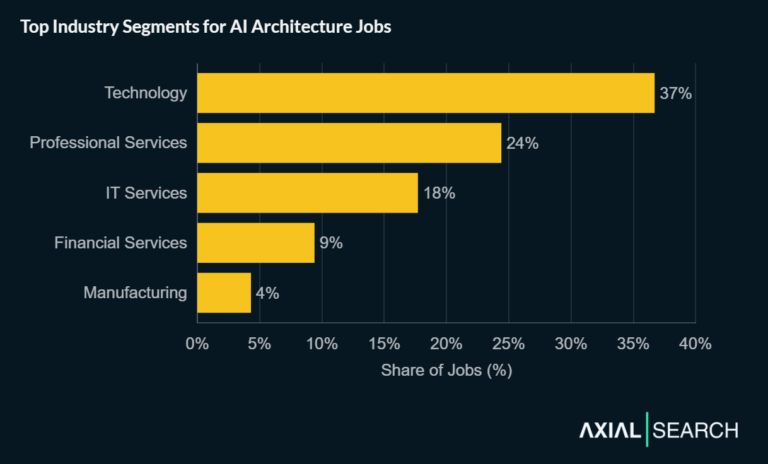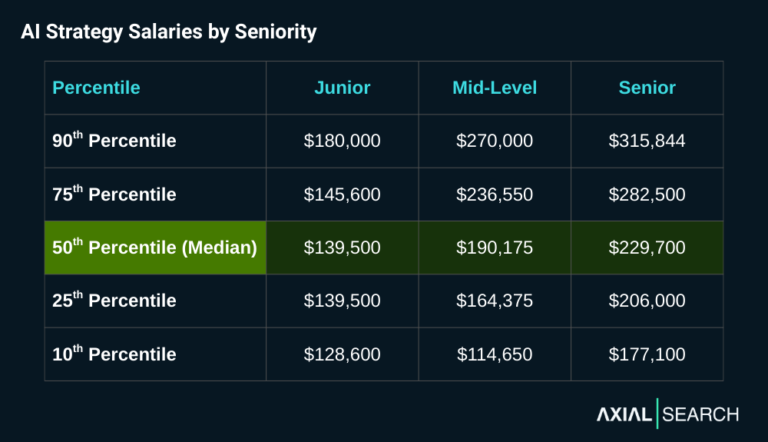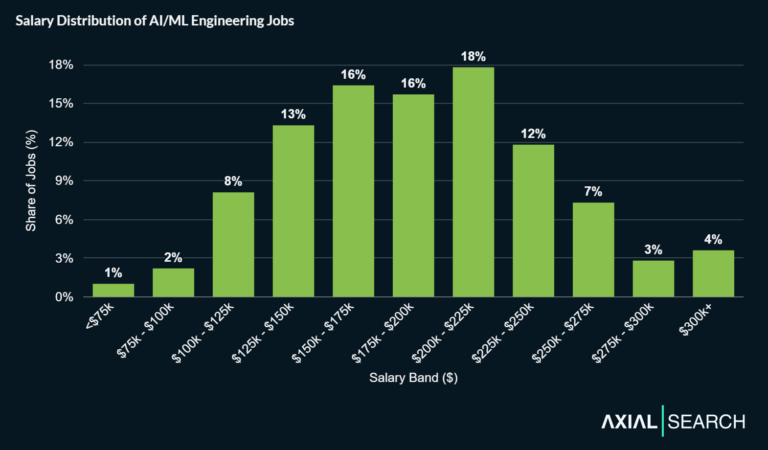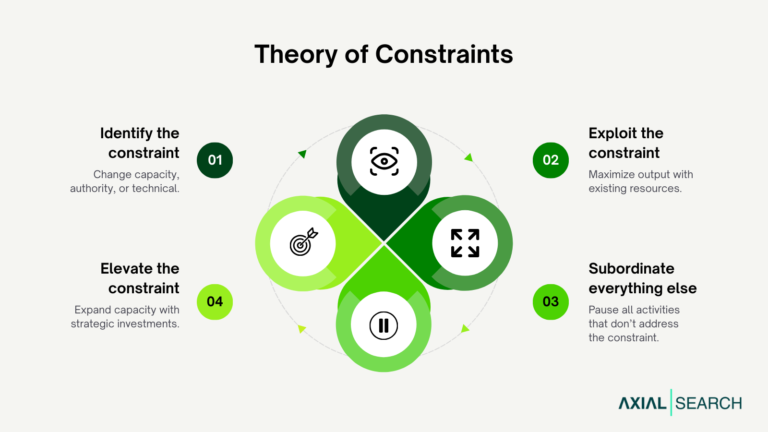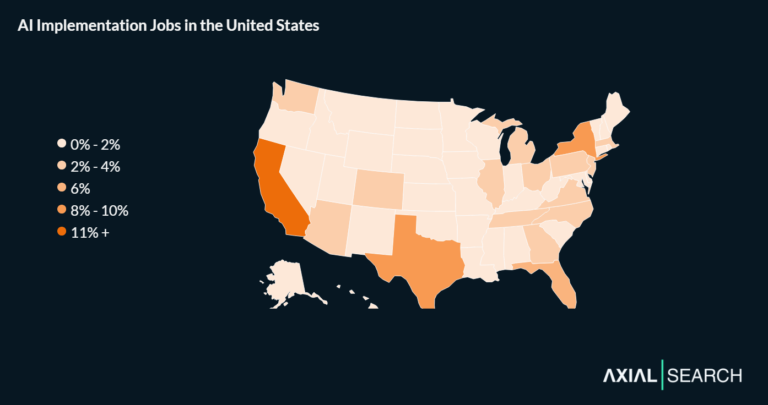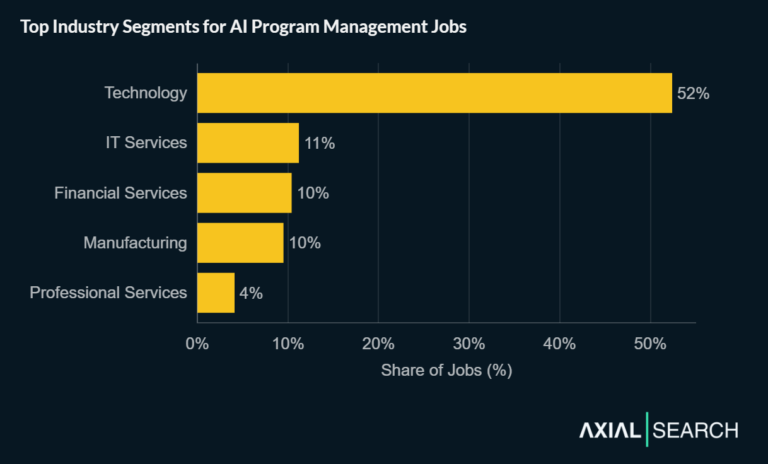Understanding the impact of chief data officer jobs
Chief data officer roles drive business value through structured data management and governance programs. Organizations are increasingly recognizing that data requires dedicated executive oversight to deliver strategic outcomes rather than remaining a technology afterthought.
Data has the power to solve some of the most pressing challenges facing society. However, most of the data remain siloed, fragmented, and unavailable for deriving social and economic value. It is estimated that approximately 90% of data in the world today was created in the last two years. The scale of the challenge is staggering.
The financial impact of effective data leadership is substantial. Gartner has reported that organizations lose on average $12.9 million each year due to poor data quality—underscoring the ROI from a CDO-led data quality and governance program.
What responsibilities define a chief data officer role?
Chief data officer responsibilities span strategic oversight, operational governance, and value realization across the entire data lifecycle. These roles bridge technical capabilities with business strategy to ensure data investments deliver measurable outcomes.
Core responsibilities include:
- Enterprise Data Strategy: Leads enterprise-wide data and analytics strategy, governance, and utilization of data as a business asset to drive outcomes
- Data Governance Implementation: Establishes the data governance operating model, policies, stewardship/ownership, issue management, and policy compliance—core capabilities outlined in DCAM
- Cloud Data Controls: Implements controls for cataloging/metadata, lineage, data quality, access, privacy, and sovereignty as part of a cloud data control framework
- AI Governance Oversight: Ensures organizational governance for AI use of data—policies, documentation, and quality measures to manage AI risks across the lifecycle
- Privacy and Compliance: Coordinates with privacy and CIO/security leaders to ensure data protection, confidentiality, and compliance while enabling data use for mission and decision-making
- Data Inventory Management: Oversees creation and maintenance of a comprehensive data inventory and facilitates access and use of data (including open data where appropriate)
- Culture Transformation: Leads culture change and data literacy so that teams responsibly and confidently use data—balancing value creation with trust and accountability
- Value Creation Focus: Shifts from purely defensive governance to offensive value creation—building a scalable data products/platform capability and delivering business impact from data and AI
In the U.S. public sector, the CDO is statutorily responsible for life-cycle data management, establishing enterprise data governance, and supporting evidence-building. This legal framework provides clear accountability for data stewardship and utilization.
Takeaway: Chief data officer responsibilities encompass strategic leadership, governance implementation, and value delivery while ensuring compliance and risk management across the complete data lifecycle.
How are chief data officer jobs structured in organizations?
Chief data officer positions operate within complex organizational structures that require extensive cross-functional collaboration and clear reporting relationships. The role’s positioning reflects whether the mandate emphasizes value creation, operational efficiency, or platform enablement.
Organizational models vary based on scope and maturity:
- Reporting Structure: Common reporting lines for CDOs include the CEO, COO, or CIO, depending on whether the mandate is value creation, operational efficiency, or platform enablement
- Operating Models: CDO organizations commonly use centralized or hub-and-spoke (federated) models: a central data office sets standards/platforms while domain teams execute analytics locally
- Finance Partnership: CDOs collaborate with Finance on data quality for financial and management reporting, performance metrics, and value realization from data products
- Privacy Coordination: CDOs routinely partner with Chief Privacy Officers and Legal to balance data use with privacy-by-design, consent, and regulatory compliance
- Security Alignment: CDOs typically collaborate with CISOs and Risk/Compliance to align governance with security controls, access management, and risk policies for analytics, AI and automation
The CDO-led data office can act as a center of excellence with federated domain data ownership. This hybrid approach enables standardization while preserving domain expertise and accountability for data products and analytics.
Critical partnerships extend beyond traditional IT boundaries. ISACA emphasizes that CDO and CISO must coordinate on data classification, control frameworks, and risk treatment to safely scale data use. These relationships are essential for balancing innovation with risk management.
Takeaway: Chief data officer jobs require strategic positioning within organizations that balances centralized oversight with federated execution, supported by strong partnerships across security, privacy, finance, and business leadership.
Core skills for chief data officer jobs
Chief data officer roles demand a unique combination of technical expertise, business acumen, and leadership capabilities. Success requires mastering data governance fundamentals while driving organizational transformation and measurable value creation.
Essential skills span multiple domains:
- Data Governance Leadership: CDOs should lead formal data governance programs that define ownership, stewardship, and decision rights based on industry best practices
- Quality Management: Data quality is a core capability requiring standards, controls, and remediation processes so data is fit for purpose across the enterprise
- Metadata Excellence: Metadata management, including business and technical metadata and lineage, to enable discoverability, control, and accountability
- Product Architecture: Design scalable, interoperable platforms and operating models around data products to accelerate analytics and value delivery
- AI Risk Management: Apply AI governance to GenAI and ML initiatives using Govern, Map, Measure, and Manage functions to manage AI risks
- Privacy Framework Application: Structure to identify and manage privacy risk, align with regulations, and build trustworthy data practices when setting enterprise data policies
- Business Value Focus: Focus on measurable business value and build strong partnerships with business leaders through influence, communication, and value storytelling
- Change Leadership: Cultural and organizational factors remain the primary obstacles to becoming data-driven, making change leadership a critical CDO competency
Collaboration capabilities are increasingly important. The U.S. CDO Council’s Annual Report emphasizes collaboration across agencies and communities of practice to advance data maturity, underscoring a CDO’s role in convening stakeholders and aligning priorities.
Successful chief data officers balance technical depth with strategic vision, ensuring data initiatives deliver tangible business outcomes while maintaining governance and risk controls.
Takeaway: Core skills for chief data officer jobs combine deep data governance expertise with strategic business leadership, change management capabilities, and the ability to translate technical capabilities into measurable value creation.
What frameworks and models guide chief data officers?
Chief data officers rely on established frameworks and models to structure data governance, manage risks, and drive value creation across complex organizational environments. These frameworks provide proven methodologies for implementing enterprise data management at scale.
Foundational frameworks include:
- DCAM Framework: Comprehensive capabilities and assessment framework covering data strategy, governance, architecture, quality, analytics, and operating model—used by CDOs to baseline maturity and build roadmaps
- DMBOK Knowledge Areas: Organizes enterprise data management into 11 knowledge areas (e.g., governance, quality, metadata, MDM, security) that CDOs use to structure operating models, stewardship, and standards
- Data Mesh Principles: Promotes domain-oriented ownership, data-as-a-product, a self-serve platform, and federated governance—an organizational paradigm CDOs can adopt to scale data with accountability
- FAIR Data Principles: Findable, Accessible, Interoperable, Reusable data stewardship model emphasizing metadata, standards, and reuse—applicable to enterprise data discoverability and interoperability
- Federal Data Strategy Principles: Ten principles (e.g., ethical governance, conscious design, learning culture) that provide a practical compass for data stewardship, inventory, quality, and access practices
Risk and governance frameworks address compliance and security:
- NIST AI Risk Management Framework: Provides functions (Map, Measure, Manage, Govern) and guidance to address AI risks—including data quality, bias, traceability, and transparency—helping CDOs integrate AI governance into data lifecycle controls
- NIST Privacy Framework: Risk-based framework to identify, assess, and manage privacy risks across data processing, aligning with enterprise risk management and complementing data governance and security programs
- NIST Cybersecurity Framework 2.0: Adds a Govern function and updated guidance to manage cyber risk, including data protection, asset management, and supply chain—useful for CDOs aligning data risk and governance
- CDMC Cloud Controls: Defines 14 Key Controls and 37 Capabilities for governing and protecting sensitive data in cloud and hybrid environments, guiding migration, lineage, access, and policy enforcement decisions
- Data Ethics Canvas: Structured approach to identify stakeholders, benefits/harms, risks, and mitigations across data initiatives—supporting CDO-led ethics reviews, governance councils, and risk registers
These frameworks provide structured approaches to common challenges while allowing customization for specific organizational contexts and regulatory requirements.
Takeaway: Chief data officers leverage comprehensive frameworks like DCAM and DMBOK for enterprise data management while applying specialized models for AI governance, privacy protection, and ethical data use to ensure compliant value creation.
Which tools are essential in a chief data officer job?
Chief data officer positions require proficiency across diverse technology platforms that enable data governance, quality management, analytics, and value delivery at enterprise scale. Tool selection reflects the complexity of modern data ecosystems and governance requirements.
Data governance and catalog platforms form the foundation:
- Collibra Platform: Platform for data governance, catalog, lineage, and data quality to establish common definitions, policies, and trusted data
- Alation Data Catalog: Enterprise data catalog for discovery, stewardship, governance workflows, and collaboration across data assets
- IBM Watson Knowledge Catalog: Data catalog with governance, metadata management, policy enforcement, and lineage to enable trusted, self-service data
- Microsoft Purview: Unified data governance and data catalog to discover, classify, and manage lineage across on-premises, multicloud, and SaaS data estates
Enterprise data platforms enable scaled operations:
- Snowflake Data Cloud: Scalable data platform for warehousing, data engineering, sharing, and governance with fine-grained access controls
- Databricks Lakehouse: Lakehouse platform for data engineering, BI, and AI with centralized governance via Unity Catalog
- Azure Synapse Analytics: Integrated analytics service combining data integration, enterprise data warehousing, and big data analytics
- Informatica IICS: Cloud-native suite for data integration, governance & privacy, data quality, MDM, and application integration
Data quality and observability tools ensure reliability:
- Monte Carlo: End-to-end data observability for monitoring data quality, lineage, incidents, and SLAs across the data stack
- Great Expectations: Open-source data quality framework to validate, document, and profile data in pipelines
- BigID: ML-powered discovery, classification, and cataloging of sensitive data to support privacy, governance, and security initiatives
Analytics and visualization platforms deliver business value:
- Tableau: End-to-end analytics platform for data visualization, dashboards, and governed analytics at scale
- Microsoft Power BI: Enterprise BI for interactive dashboards, reporting, and governed self-service analytics across the organization
Workflow orchestration supports operational excellence:
- Apache Airflow: Open-source platform to programmatically author, schedule, and monitor data workflows and pipelines
Takeaway: Essential tools for chief data officer jobs span governance platforms like Collibra, enterprise data clouds like Snowflake, quality monitoring solutions like Monte Carlo, and analytics platforms like Tableau to deliver comprehensive data management capabilities.
Necessary qualifications for chief data officer jobs
Chief data officer positions typically require advanced educational backgrounds that combine technical expertise with business leadership capabilities. The interdisciplinary nature of the role welcomes diverse academic paths while emphasizing strategic thinking and data management competencies.
Educational requirements commonly include:
- Advanced Degrees: Many CDO roles prefer an advanced degree (MS or MBA) to demonstrate strategic thinking and leadership capabilities
- Technical Foundations: Common undergraduate and graduate majors include computer science, data science, information systems, statistics, and engineering
- Business Acumen: MBA programs provide strategic planning, organizational leadership, and financial management skills essential for executive data roles
- Specialized Programs: Emerging master’s programs in data science, analytics, and information governance offer targeted preparation for chief data officer careers
Professional experience often carries more weight than specific degree requirements. Organizations value demonstrated leadership in data initiatives, governance program development, and measurable value creation from analytics investments. Many successful CDOs transition from related executive roles in IT, analytics, operations, or consulting. With the recent uptick in AI adoption, CDOs are transitioning to/from Chief AI Officer and AI strategy positions.
Industry expertise can differentiate candidates. Financial services organizations prefer experience with regulatory data requirements and risk management. Healthcare seeks familiarity with clinical data governance and privacy compliance. Technology companies value experience with product analytics and AI/ML governance.
Consulting backgrounds provide valuable exposure to diverse data challenges across industries and organizational contexts. This experience builds pattern recognition for common data management obstacles and proven solution approaches.
Leadership credentials demonstrate the capability to drive organizational transformation. Change management experience, board presentation skills, and cross-functional collaboration abilities are essential for success in chief data officer roles.
Takeaway: Chief data officer qualifications emphasize advanced degrees in technical or business fields, combined with executive leadership experience and demonstrated success in driving organizational value through data and analytics initiatives.
What certifications are valuable in a chief data officer role?
Professional certifications demonstrate expertise and commitment to data management best practices while providing structured learning paths for chief data officer career development. Leading credentials validate competencies across governance, analytics, and enterprise architecture domains.
Core data management certifications include:
- CDMP (Certified Data Management Professional): Vendor-neutral credential validating mastery of DMBOK-aligned disciplines (data governance, quality, metadata, MDM, architecture) widely respected for CDOs to evidence enterprise data management leadership across Associate/Practitioner/Master levels
- CAP (Certified Analytics Professional): Vendor-neutral analytics leadership credential covering the end-to-end analytics process (business problem framing, data, model lifecycle, ethics), aligning with CDO oversight of analytics value realization
Governance and enterprise architecture credentials support strategic leadership:
- CGEIT (Certified in the Governance of Enterprise IT): Validates governance of enterprise IT—strategic alignment, value delivery, risk optimization, and performance—helping CDOs align data strategy with corporate governance objectives
- TOGAF Certification: Enterprise Architecture framework credential that helps CDOs align target-state data architectures with business strategy, standards, and governance at scale
These certifications provide standardized validation of competencies essential for chief data officer success. They demonstrate mastery of industry frameworks, best practices, and methodologies that enable effective data leadership at enterprise scale.
Certification maintenance requirements ensure ongoing professional development and awareness of evolving practices in data governance, analytics, and technology platforms. This continuous learning is essential given the rapid pace of change in data technologies and regulatory requirements.
Professional credentials enhance credibility with executives, board members, and external stakeholders while providing structured knowledge frameworks for leading complex data initiatives across diverse organizational contexts.
Takeaway: Valuable certifications for chief data officer roles include CDMP for comprehensive data management expertise and CGEIT for enterprise governance capabilities, providing credible validation of competencies essential for executive data leadership.
Career progression for chief data officer jobs
Chief data officer careers offer diverse advancement opportunities with paths spanning increased organizational scope, industry specialization, and expanded strategic responsibility. Progression typically reflects growing expertise in data strategy, governance maturity, and measurable business value creation.
Typical career progression includes:
- Data Analyst/Scientist: Entry-level technical roles building domain expertise in analytics and data quality
- Data Manager/Senior Analyst: Mid-level positions with team leadership and governance responsibility
- Director of Data/Analytics: Senior management roles overseeing enterprise data programs and strategies
- Chief Data Officer: Executive leadership of enterprise-wide data and analytics initiatives
- Chief Data and Analytics Officer: Combined CDAO roles responsible for both data governance and analytics strategy
Emerging role variations reflect organizational evolution:
- Chief Digital and Data Officer: Combined digital and data leadership positions overseeing comprehensive digital transformation including data strategy
Career advancement opportunities span multiple directions including increased scope (enterprise vs. business unit), specialized expertise (governance, AI/ML, privacy), or related executive roles (CTO, CIO, COO). Many CDOs transition to CEO positions in data-driven organizations or consulting leadership roles.
Industry mobility is common as data governance principles apply across sectors. Healthcare, financial services, technology, and government organizations all require similar data leadership competencies while offering distinct regulatory and operational contexts.
Geographic expansion provides additional growth opportunities. Multi-national organizations require CDOs who understand diverse privacy regulations, cultural differences in data sharing, and cross-border data governance requirements.
Takeaway: Chief data officer career progression offers multiple paths from technical specialist roles to enterprise executive positions, with opportunities for industry specialization, geographic expansion, and evolution into broader digital leadership responsibilities.
Which associations benefit a chief data officer career?
Professional associations provide essential networking, education, and credibility that accelerate chief data officer career development while keeping practitioners current with evolving best practices and regulatory requirements.
Primary data management associations include:
- DAMA International: Global professional association for data management highly aligned to CDO responsibilities in data governance, strategy, and stewardship
- EDM Council: Industry association focused on enterprise data management and best practices; a strong hub for CDOs driving governance, risk, and value from data
- Data Governance Professionals Organization: Member-led community dedicated to data governance practice development and peer exchange—directly relevant to CDO-led governance programs
Related professional organizations offer valuable adjacencies:
- ISACA: Global association for digital trust, IT governance, and risk; valuable for CDOs aligning data governance with enterprise governance and controls
- TDWI: Industry body offering education and peer communities for data and analytics leaders—useful for CDOs advancing analytics strategy and literacy
- International Association of Privacy Professionals: Leading association for privacy governance—a critical adjacency for CDOs ensuring compliant data use and stewardship
Specialized organizations address specific competencies. The Information Quality Association focuses on data quality standards and practices essential for CDO accountability. Academic partnerships through organizations like MIT’s CDOIQ Program provide research-backed insights and peer networking with other senior data leaders.
These associations offer certification programs, conferences, webinars, and peer communities that support ongoing professional development. They provide forums for sharing challenges, solutions, and emerging practices across industries and organizational contexts.
Membership demonstrates commitment to professional excellence while providing access to thought leadership, regulatory updates, and vendor-neutral guidance on technology selection and implementation strategies.
Takeaway: Strategic association membership in organizations like DAMA, EDM Council, and ISACA provides chief data officers with essential peer networks, professional development opportunities, and credible sources of industry best practices and emerging trends.
What industry events should chief data officers attend?
Industry conferences provide chief data officers with essential learning opportunities, peer networking, and exposure to emerging technologies and practices that drive data strategy evolution and professional development.
Premier data leadership events include:
- CDOIQ MIT Symposium: Flagship academic–industry gathering for CDOs focused on data leadership, governance, and monetization, hosted by MIT’s CDOIQ Program
- Corinium CDO & CDAO Events: U.S. flagship event for Chief Data & Analytics Officers covering operating models, data strategy, and value realization
- Gartner Data & Analytics Summit: Premier conference for data and analytics leaders, with CDO-focused keynotes, leadership tracks, and governance strategy
Broad industry conferences offer valuable context:
- TDWI Conferences: Training and leadership conferences on data management, analytics, and governance aligned to CDO capability building
- Big Data LDN: Major European data conference with enterprise data strategy, governance, and CDO leadership tracks; globally relevant
These events provide access to research insights, case studies, and practical guidance from leading practitioners and technology vendors. They offer structured learning opportunities through keynotes, breakout sessions, and workshops designed specifically for senior data leadership.
Networking opportunities connect CDOs with peers facing similar challenges across industries and organizational contexts. These relationships provide ongoing support networks for problem-solving and best practice sharing beyond formal conference programming.
Technology exhibitions showcase emerging solutions for data governance, quality management, and analytics platforms. This exposure helps CDOs evaluate vendor capabilities and understand market evolution without sales pressure.
Professional development tracks often include leadership skills, change management, and strategic planning sessions that complement technical data management knowledge with executive capabilities essential for CDO success.
Takeaway: Essential industry events for chief data officers include MIT’s CDOIQ Symposium and Gartner’s Data & Analytics Summit, providing research-backed insights, peer networking, and strategic guidance for driving data-driven transformation at enterprise scale.
Chief data officer salary trends and insights
Chief data officer compensation reflects the strategic importance and scarcity of qualified executive data leadership talent. Salary ranges vary significantly based on organization size, industry, geographic location, and scope of responsibility.
Compensation benchmarks include:
- Total Compensation Range: Glassdoor’s US estimate for Chief Data Officer shows a typical total pay (base + bonus/equity) most-likely range of $234K to $436K per year, with a median of $311K
- Base Salary Estimates: PayScale indicates average base compensation for Chief Data Officer around $175K
- Market Averages: ZipRecruiter reports the national average Chief Data Officer salary around $150,000
Total compensation packages typically include substantial variable components beyond base salary. Equity participation, annual bonuses tied to business outcomes, and retention incentives can increase total compensation by 50-100% above base salary levels.
Geographic factors significantly impact compensation levels. Major metropolitan markets including San Francisco, New York, and Boston command premium salaries reflecting both cost of living and competitive talent markets. Remote-first organizations may offer geographic adjustments while providing access to broader talent pools.
Industry premiums vary based on data complexity and regulatory requirements. Financial services, technology, and healthcare organizations typically offer higher compensation reflecting specialized expertise requirements and business criticality of data governance.
Organization size directly correlates with compensation levels. Fortune 500 companies and large government agencies offer higher salary ranges than mid-market organizations, reflecting scope of responsibility and budget authority for data initiatives.
Experience level and track record strongly influence earning potential. CDOs with demonstrated value creation, successful governance implementations, and measurable business outcomes command premium compensation packages.
Takeaway: Chief data officer salaries typically range from $234K to $436K in total compensation, with significant variation based on organization size, industry, location, and demonstrated track record of delivering measurable business value through data initiatives.
Final thoughts
Chief data officer jobs represent one of the most strategic and impactful executive roles in today’s data-driven economy. These positions combine technical expertise with business leadership to transform information into competitive advantage while managing the governance and risk challenges of enterprise-scale data operations. As organizations continue to recognize data as a critical business asset, demand for skilled CDOs who can deliver measurable value will continue to grow across all industries and sectors.


